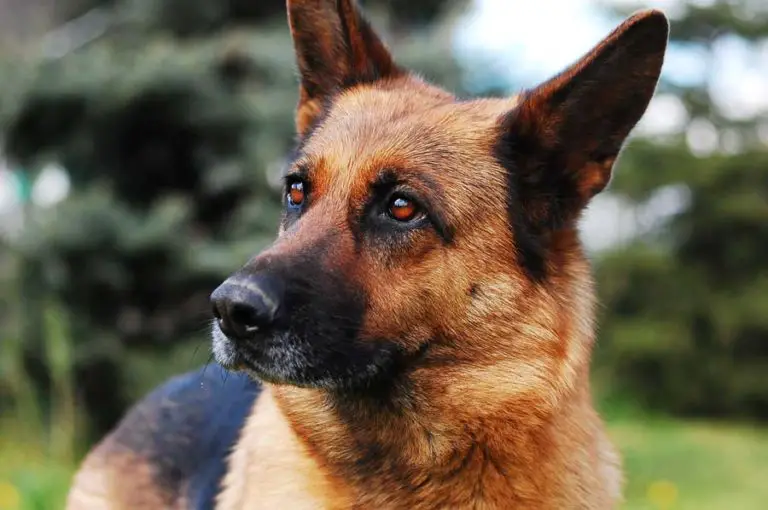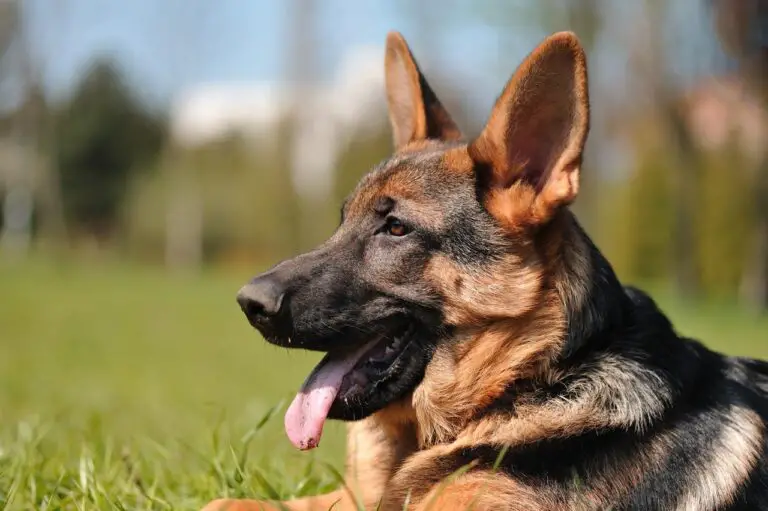Do German Shepherds Eat A Lot?
Have you ever found yourself wondering if your German Shepherd is eating too much or not enough? As a proud owner of a German Shepherd, I can relate to this concern. It’s important to understand the basics of their diet and figure out the appropriate amount of food they need.
Factors like age, weight, and level of activity can influence their appetite, making it important to pay close attention to their eating habits. Once you figure out the appropriate feeding amounts, managing their food intake to avoid overeating becomes crucial.
In this article, we’ll cover everything you need to know about feeding your German Shepherd. From their diet basics to the importance of balanced nutrition, we’ve got you covered. Plus, we’ll share some tips and warning signs to keep in mind as you manage their food intake. So, grab a cup of coffee, and let’s dive in!
German Shepherd Diet Basics
German Shepherds are highly energetic and active dogs that require a special diet to meet their nutritional needs. Their diet should consist of high-quality proteins, healthy fats, and complex carbohydrates. Proper hydration is also an essential aspect of a German Shepherd’s diet.
To maintain a healthy and balanced diet, it is recommended to provide a mix of dry and wet food, along with occasional treats in moderation. Avoid feeding your German Shepherd table scraps or human food as it can lead to obesity, digestive problems, and other health issues.
Consult your veterinarian to determine the appropriate type and amount of food for your German Shepherd based on their age, weight, and activity level. Remember to always offer fresh water and monitor their eating habits to prevent overfeeding.
In short, a well-balanced diet is crucial to keeping your German Shepherd healthy and happy, providing them with the energy they need to enjoy life to the fullest.
Factors Influencing Appetite
Various factors can influence the appetite of your German Shepherd. Some factors that can positively impact their appetite include regular exercise, quality food, and a consistent set feeding schedule.
Conversely, stress, anxiety, and boredom can decrease appetite. It is also essential to monitor their health closely, as illnesses or injuries can cause a lack of appetite. By paying attention to these factors, you can help ensure a healthy and balanced diet for your shepherd.
Typical Feeding Amounts
Typical feeding amounts for German Shepherds vary based on their age, weight, and activity level. As a general guideline, adult German Shepherds should consume between 1.5 to 2.5 cups of dry dog food per day. Puppies, on the other hand, need to be fed about three to four times a day until they reach six months of age.
It’s crucial to consider your dog’s individual needs and adjust the serving size accordingly. Overfeeding can lead to obesity, which can cause a slew of health issues. Conversely, underfeeding can cause malnutrition, which can adversely affect your dog’s growth and development.
Always check with your veterinarian to figure out the right feeding routine and serving size for your furry friend. It also helps to spread out the meals throughout the day and avoid indulging them with too many treats or table scraps. This way, you can keep your German Shepherd healthy and happy.
Tips for Managing Food Intake
Here are some tips to help you manage your German Shepherd’s food intake:
- Establish a feeding schedule: Set a specific time to give your dog its meals and stick to it.
- Measure your dog’s food: Use a measuring cup to ensure that your dog is getting the appropriate amount of food.
- Avoid free-feeding: Free-feeding is when you leave food out all day for your dog to eat whenever it wants. This can lead to overeating and obesity.
- Use appropriate portion sizes: Feed your dog based on its age, weight, and activity level. Consult your vet for recommendations.
- Monitor treats and table scraps: These should not make up a significant portion of your dog’s diet. Stick to healthy treats and limit table scraps.
By following these tips, you can help manage your German Shepherd’s food intake and maintain a healthy weight. Remember to always consult with your vet for personalized recommendations.
Warning Signs of Overeating
While most dogs love to eat, overeating can have serious consequences for their overall health. Here are some warning signs that your German Shepherd might be overeating:
- Rapid weight gain or obesity
Eating more calories than they burn can cause your dog to gain weight quickly. Obesity increases the risk of several health problems, including joint pain, heart disease, and diabetes.
- Begging for food
If your dog is constantly begging for food or hovering around the kitchen during meals, it could be a sign that they are not getting the nutrients they need or are consuming too many treats.
- Diarrhea or vomiting
Overeating can lead to digestive problems, including diarrhea and vomiting. If you notice these symptoms in your dog, it’s best to consult with a veterinarian.
- Lack of energy or lethargy
Feeling lethargic or unusually tired can be an indication that your dog is consuming too many calories.
- Excessive thirst
Overeating can lead to dehydration, which can cause your dog to drink excessive amounts of water.
By watching out for these warning signs, you can ensure that your German Shepherd is eating a healthy amount of food and maintaining a balanced diet.
Importance of Balanced Nutrition
Having a balanced nutrition is essential for German Shepherds’ overall health and well-being. Providing the right nutrients in the right amount ensures that your dog receives everything his body needs to function at his best.
With a balanced diet, your furry friend can have a strong immune system, healthy skin, and coat, and maintain a healthy weight. It’s crucial to feed your German Shepherd a well-balanced diet to prevent malnutrition, obesity, and other health issues.
To achieve this, you should provide your German Shepherd with a well-rounded meal that includes high-quality protein, carbohydrates, fats, vitamins, and minerals. Remember, a balanced diet is more than just filling up your dog’s bowl; it’s about giving him the right nutrients in the right proportions.
Conclusion
In conclusion, German Shepherds are known to have a big appetite, but the amount they eat depends on various factors like age, physical activity, and size. A well-balanced diet ensures that your German Shepherd gets all the necessary nutrients to maintain good health and energy. By considering the recommended food amount and offering regular exercise, you can manage your German Shepherd’s food intake and keep them healthy throughout their life.
It’s essential to keep a close eye on your dog’s eating habits and monitor any signs of overeating. Obesity in German Shepherds can lead to several health issues, including joint problems, heart diseases, and respiratory issues. Make sure to consult with your veterinarian if you notice any changes in your dog’s eating habits.
Remember, balanced nutrition is critical for your dog’s overall well-being. By feeding them a well-rounded diet, you can ensure their health and happiness. Make a habit of examining your German Shepherd’s food portions and controlling their eating habits to keep them fit and healthy.





